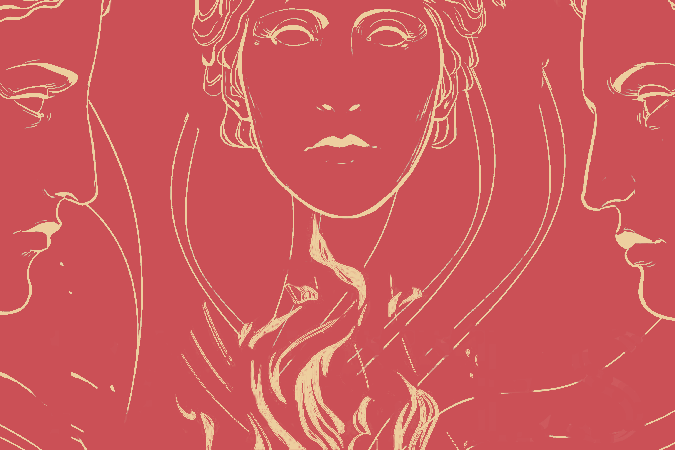The Fates: Review
By Sioph LealBefore there were Gods and mortals, there were the fates. Clotho, Lachesis, and Atropos were three sisters born out of Nyx’s darkness, tasked with weaving the lives and deaths of humankind for eternity with their own immortal lives. Immortality and the fates of others are a heavy burden, especially when Clotho, Lachesis, and Atropos become fascinated with the human lives of mortals, mainly the great warrior Atalanta and her ill-fated lover, Meleager. The three sisters learn that they are not masters of fate and try to see if they are to be bound by fate forever.
The Fates tries to reinvent the three fates, Clotho, Lachesis, and Atropos, turning them from old, withered old women into ageless, hopeful girls whose curiosity gets the better of them. The most common representations have the sisters at different stages of life. Atropos is portrayed as an old woman as she chooses when people die, while Clotho is portrayed as a young woman who is present when women give birth. Having the fates of the same age and the same curiosities is a good choice, but it can lead to their voices melding into one.
Clotho, Lachesis, and Atropos are indistinguishable in their narrative voices, which does make The Fates a struggle to read. It had the chance to retell an uncommon story, but instead, the lack of distinguishable voices made The Fates a struggle to read. Garland also seems to struggle to find her voice as a writer in this novel and feels as if she is trying too hard to be poetic, which doesn’t quite fit the narrative she is trying to describe.
While The Fates shows the three sisters in a new light, one of the positives from the book was to see their empowerment as female protagonists while simultaneously addressing the real dangers they face as women. The Fates touches upon patriarchy within Greek mythology, but more so in the myth of Atalanta, overshadowing the sister’s storyline at times. When Zeus is brought into the story, he is presented as cruel and meddling, which paints him in a villainous light that most authors shy away from.
Greek mythology, specifically retelling, is a popular choice amongst writers and readers, and while some authors find a new voice for their leads, it felt as though Garland struggled to find individual personalities for the three fated sisters. Some moments of The Fates were insightful, but they were few and far between, which is a shame given the potential of this retelling.


